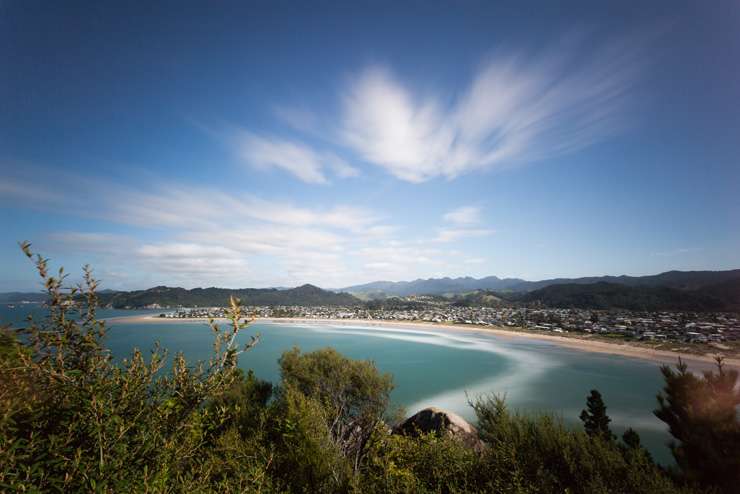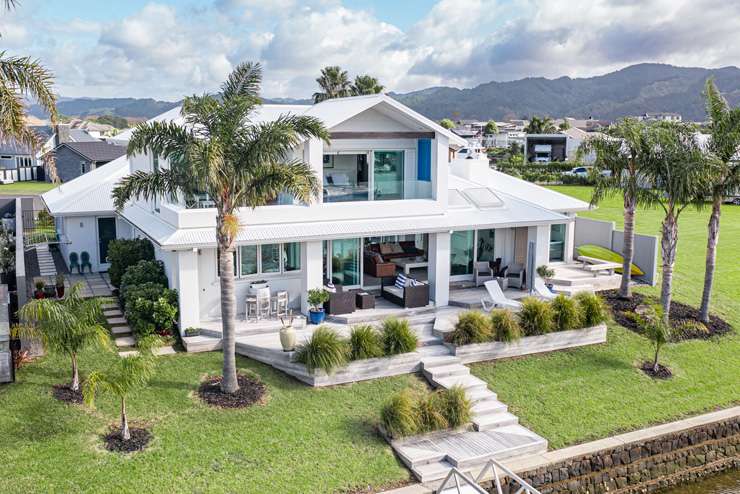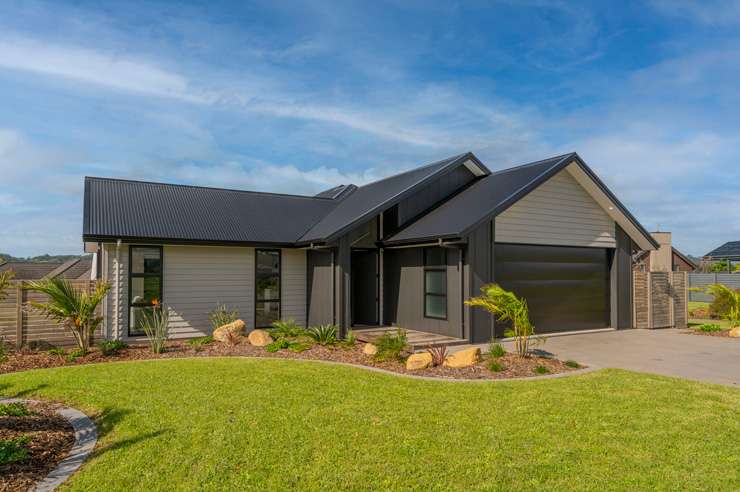Despite enjoying an unusually hot first half of the year, some of New Zealand’s most popular beach towns are starting to feel the winter chill, although there are some buyers still willing to spend millions on the region's trophy baches.
First National’s Gordon Turner, who covers Whangamata coast through to Tairua and Waihi Beach, in the Coromandel, said sales in the region were down. “We’re collecting listings like mad, but not that many are selling,” he said.
“Beachfront will sell, but that’s it. When we have a change of market like this it takes a while, we slip into old habits.”
Turner said that vendors who listed before the market changed were still “sticking to their hopes and dreams” of unrealistic prices.
Start your property search
“But we’ve not yet got the sense of a spring up-tick. The general consensus is that people are bolting down hard, and the market has had cold water poured on it.”
Turner said while the housing market was starting to feel a little like 2010, after the GFC hit New Zealand, he had not yet seen any of the tell-tale signs of economic hardship in his patch. “When businesses are finding it hard and we see empty shops pop up, that’ll be the sign,” he said.
Bayleys auctioneer Stephen Shale, who calls auctions around Bay of Plenty, Waikato and Taranaki, including the Coromandel and Thames, said the market chill had spread from Auckland to Mount Maunganui and had now finally reached the Coromandel.
“If Auckland gets tough, the Mount gets tough. The Mount’s hardest times are behind it – that was February, March and April when we were selling about 20% under the hammer. Now we’re selling about half. It’s the same with Coromandel now,” he said.
But he added, buyers with money have choice so will search widely and know what comparable properties are worth. This week, he brought the hammer down on a smart, modern three-bedroom waterside home on Arawa Lane in Whitianga Waterways that had been brought forward with a pre-auction offer and sold for $2.45 million – almost $1m above RV.
Other properties have not been so lucky, but Shale said auctions where bidding reached a certain point were a good indication of buyer interest.

Whangamata, in the Coromandel, has felt the winter chill, according to agents. Photo / Getty Images
“Some properties get a conditional agreement afterwards and there’ll be some to-ing and fro-ing, it might take 10 days,” he said.
“We’re down on the volume of buyers, and some in a cash position hope to get very cheap. If a seller wants to sell, they will.”
The queue of buyers for absolute beachfront would mean prices for those lucky properties would always hold.
“Waterfront properties are heirlooms. Those trophy homes are insulated from interest rates, and often those buyers can leverage off other properties, so even though it looks like a big number, it’s only adding another $1m to their mortgage,” he said.
Shale was surprised at how far buyers with big budgets search. This summer, for example, the underbidder who missed out on a $6m Mount Maunganui property finished up buying a $5.7m waterfront property on Rotorua Lakes, he said. “They’re looking all over.”
Harcourts David Frew said that the number of listings around Whangamata and the Coromandel beach towns was about average for this time of year, much more like a normal winter than the past two years. “The slowdown is not in any particular price point. We’ve had two sales this month that went in a matter of days – one under $1m, one in the mid-$1m,” he said.

A three-bedroom waterside home on Arawa Lane, in Whitianga Waterways, sold for $2.45m. Photo / Supplied
“It’s not about the price point, it’s more about the realism of the price: is that a property that the market really wants? We’re not getting the standoff, where vendors are clinging to aspirational prices and buyers are looking for a bargain, they’re meeting in the middle.”
Frew noted that locals making normal life moves – upsizing, downsizing, moving areas – had kept the Coromandel market ticking over. “Buyers are not magically thinking they can time the market. They’re going ‘I see the house I want, in the timeframe I want, I’ll go ahead and buy it’,” he said.
Reuben van Dorsten, owner of Ray White in Whitianga and Whangamata, said that he was sensing positivity in the market, with buyers re-engaging and thinking now was a good time to buy. “We’re hearing that banks, in the battle for market share, are not going to let mortgages sit un-taken, so packages will start to follow. We’re already seeing interest rate wars start again and second-tier lenders competing for business, although that would probably not be for the second-home market,” he said.
Like Frew, he said many of the buyers are not looking for holiday homes, but permanent homes as they leave the big cities.

A three-bedroom home on Topping Place, on the Whitianga Waterways, sold in May for $1.525m. Photo / Supplied
And while he said that beachfront properties are “their own little beast, if there’s anything on the beachfront, people are scrapping”, homes even a street away from the water aren’t seeing the same competition.
This month the agency sold a nearly new luxury three-bedroom home on Beach Road, across the road from the harbour, for an undisclosed price between $4m and $5m. “That same weekend that someone sold a $6.5m waterfront place; we sold a $650,000 section, with three offers. The lower end and land is still moving.”
But while the year round “lived in” towns like Whangamata and Whitianga are doing fine, enquiry for the purely holiday spots like Matarangi or Hahei has slowed down.
“That’s winter normal, if you take away the two years of madness and go back to 2019 it tends to back off in winter. In May we had a Whitianga property that listed on the Thursday, had a contract on the Monday and it went unconditional the following week – a nice build for $1.525m.”
- Find more properties for sale in the Coromandel.










































































